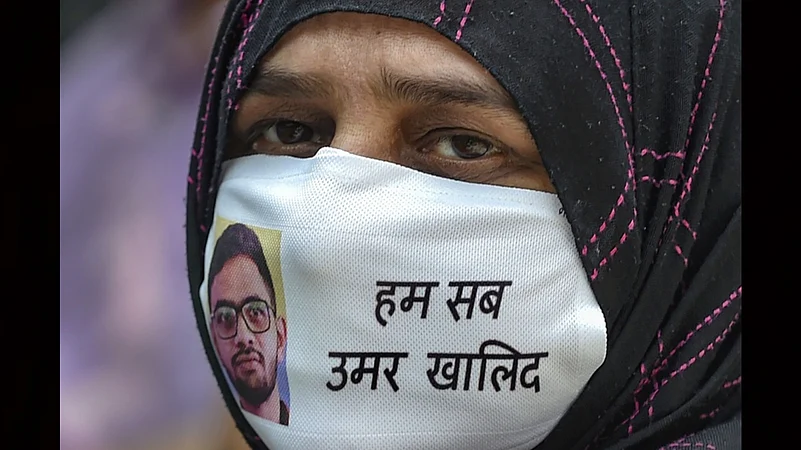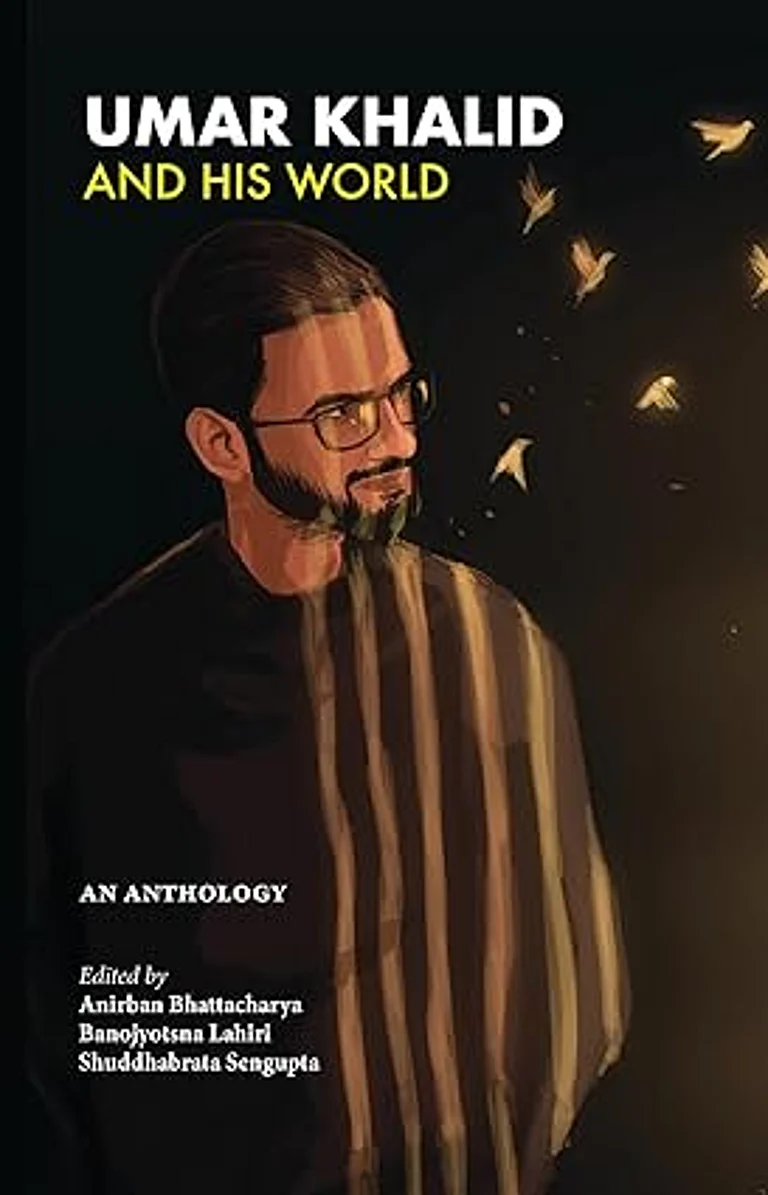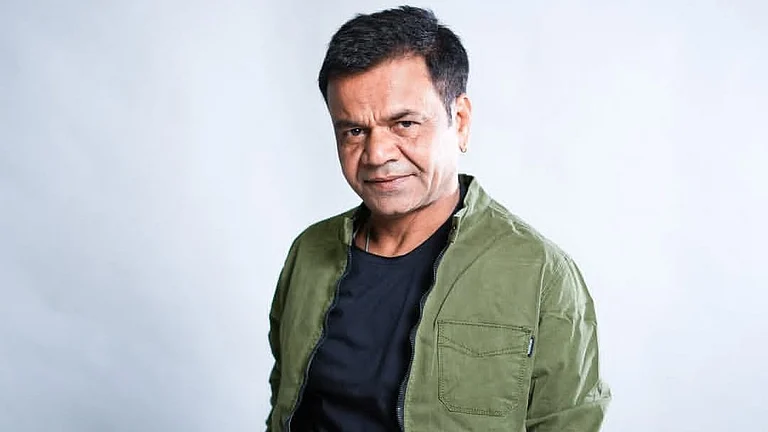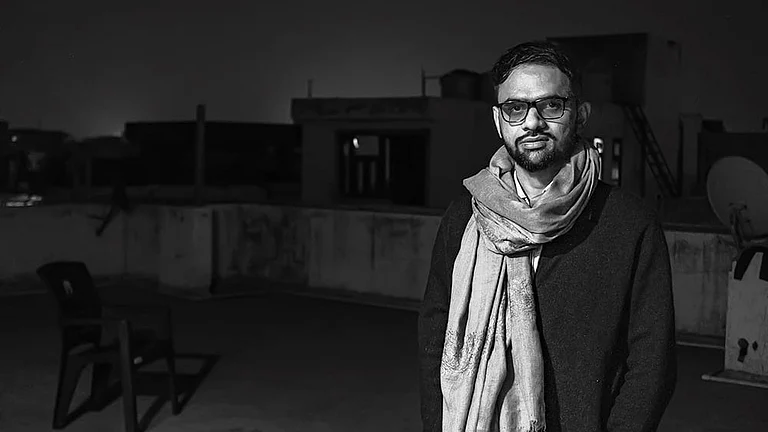On January 5, 2026, the Supreme Court is set to announce its judgement on the bail pleas of anti-CAA activists Umar Khalid, Gulfisha Fatima, Sharjeel Imam, Shifa Ur Rehman, Mohd. Saleem Khan, Meeran Haider and Shadab Ahmad in the Delhi riots 2020 larger conspiracy case under FIR 59/2020. All the accused have been in jail for close to six years now and their bail pleas have been rejected twice each by the lower court as well as the Delhi High Court. Human rights organisations across the globe have highlighted the inordinate delay in trial and the prolonged incarceration that the undertrials have faced in this case. Recently, eight U.S. Congressmen also wrote to the Indian Ambassador Vinay Mohan Kwatra, urging India to "uphold the rights of individuals" to be granted bail and receive a fair and speedy trial.
In the light of this, we revisit this account of visiting Umar Khalid in Tihar jail penned by Sabiha Khanam, Khalid's mother.
Meeting my son Umar Khalid in jail revived my spirit and refreshed my resolve.
For the past two weeks, there had been no video call from Umar. I found out that due to a technical issue, virtual meetings weren’t possible. A strange restlessness crept in as this was the only way to have even a half-meeting, and now even that was gone. My heart was heavy, and tears kept spilling from my eyes. Then suddenly, divine will intervened, and the thought of a physical meeting settled in my heart.
When I asked my husband, he mentioned an important engagement and apologized for not being able to accompany me. But I didn’t lose courage and decided to go alone to the jail. Visiting a jail at my age in person is a tough and exhausting process. But when one relies on God and stands firm in their resolve, even the hardest of paths become easier.

Today, after many months, I was going to meet my son in person. An unusual excitement and emotion began to rise in my heart. Though it’s called a physical meeting, it’s still a strange encounter — two layers of glass separate us. On one side, we stand, and on the other side is Umar. We cannot touch, not even clearly see each other. At best, his faint face appears through the glass, and we speak via intercom.
At 9 a.m. on Friday, I left home. Tihar Jail is quite far from Jamia Nagar, and the route is always busy. It took about an hour to reach. I had brought a pair of leather slippers for Umar, but the checking counter didn’t allow any footwear to be carried in. I pleaded, explaining his need, but they wouldn’t listen, and I had to leave them behind.
Inside, there were long queues of people waiting to meet their loved ones — men, women, and children. It seemed today there were more visitors than usual. I joined one of the lines and waited for my turn. Behind me, two women were talking about their loved ones. One said her son was imprisoned for rape for the past year, the other said her brother-in-law had been inside for eight months for the same crime. I remained silent, listening. I wondered how I could explain to them that my beloved son had been enduring prison for five years without committing any crime.

My thoughts wandered — I remembered how Umar was granted parole twice, each for seven days, to attend his sister’s and cousin’s weddings. Those seven days, filled with joy, family, and friends, passed in the blink of an eye. Lost in these memories, my turn finally came after about an hour, and I got my slip to enter.
But before proceeding, I had to stand in a second, even longer queue to deposit money for Umar’s monthly expenses. I spent more time in the lines than I could speak to Umar. Finally, I completed this task too and stood in the queue to enter the inner premises.
First, my shoes had to pass through an X-Ray machine, then I had to undergo a body check. After these formalities, I entered through the gate. From there, it was a 15-minute walk to Jail No. 2, where the meeting would take place.
At the meeting area, a female staff member took my slip and looked at me warmly. “Oh, so you’re Umar’s mother! I’ve seen his friends come, but this is the first time I’m seeing you,” she said kindly. She had me sign the register with my thumbprint and guided me to the waiting room, saying, “We’ll call you when Umar arrives.” Her tone was sincere and respectful.
I noticed a deep sense of respect for Umar in her eyes. I thought that this must be because of Umar’s kind behaviour and moral character. In jail, whether it’s inmates or staff, all you usually hear is abuse and harsh words. In such an environment, a prisoner with good manners leaves a lasting impression. And Umar, even in his personal life, is known for his humility and friendliness. He rarely ever gets angry. I realized that even if he didn’t gain anything else in jail, he had certainly earned respect.
By now, everyone inside the prison knew well that Umar was innocent, a victim of state persecution.
The birds chirping in the waiting area sounded lovely. In urban life, we’re so deprived of these subtle gifts of nature. It felt as if the birds flying freely within these prison walls were announcing, “We are free even here.” I reflected that on one side of the wall, we call ourselves free, while on the other side, Umar and countless others, live in helpless captivity.
For someone like Umar, who was always engaged in activism both within and outside the university, who raised his voice at Jantar Mantar and travelled across the country for justice, this confinement is immensely difficult and testing. And not just for a day or two — it’s been five long years.
Had it not been for his passion for reading, I don’t know how he would have passed the time. Over these five years, he has read more than 300 books.
Meanwhile, a voice from the loudspeaker kept repeating, likely calling prisoners from their cells. Suddenly, I heard Umar Khalid’s name, and I rushed towards the meeting area. I saw him through one of the windows. He had brought a small flower from a tree inside for me. That simple flower meant more to me than the most precious gift.
Behind the glass and grill, we started speaking via intercom. “Amma, it took a long time. I’ve been waiting for a while,” Umar said. I replied, “Yes, beta, it took a lot of time in the lines.”
He inquired about every single family member by name. He was especially concerned about his father’s health and asked about his sisters and their children. He told me about life inside. I, as always, was worried about his diet and health.
“Are you feeling okay? What are you reading these days? Is it too hot?” I bombarded him with questions.
He answered everything patiently and kept asking after everyone’s well-being. He said he regularly reads about his father’s public engagements in the newspapers.
“Tell him not to travel too much, and to take care of his health,” he said.
We talked for what seemed like no time at all, and soon, it was time to leave. Umar moved across various windows to reach the one near the exit gate. I turned to look, but the glass prevented me from seeing clearly. Perhaps he stood there watching me leave. I walked out with a heavy heart and slow steps.
But as I returned from jail, my head was held high — proud that my son was imprisoned not for a crime, but for standing with the oppressed and challenging the cruel laws of a tyrannical state. He has revived the legacy of our ancestors, the ones who challenged British colonial laws, facing imprisonment but never bowing down.
Meeting my steadfast son gave my soul a new strength.
یہ رتبہ بلند ملا جس کو مل گیا
ہر مدعی کے واسطے دار و رسن کہاں
“This high status is not for everyone —
The noose and gallows are not for every claimant of justice.”
His sacrifice, his perseverance, his endurance will one day surely be rewarded. So will the struggles of every voice of dissent in jail who are behind bars today only because they spoke up against injustice. My heart reaches out to their mothers too in solidarity as we suffer this separation from our sons and daughters in silence. And even as they suffer, they all feel the same pride I am sure. After all, when tareekh will be written of this time, our sons and daughters will be counted as the ones who did not stay quiet in the face of injustice.
I felt a lot of pride when I heard that across the oceans in another part of this world someone like Zohran Mamdani expresses solidarity with my son. Here too many people have come to visit our home in solidarity over the years. Among them were famous actors like Prakash Raj and Swara Bhaskar and many other senior activists. One day, unexpectedly, the mother of Junaid, a 17-year-old boy who was lynched in Haryana in 2017, also found her way to our house. Umar was one of those voices who had protested against such lynchings and politics of hatred. She came all that way, enduring hardship, just to meet me, to lift my spirits, and to bless me.
I have no words to thank them all. This gives me the belief that this dark phase shall pass, and ultimately those who speak of love, of unity and of justice will prevail.
Sabiha Khanam is a businesswoman and a member of Jamat-e-Islami Hind, based in New Delhi.






















